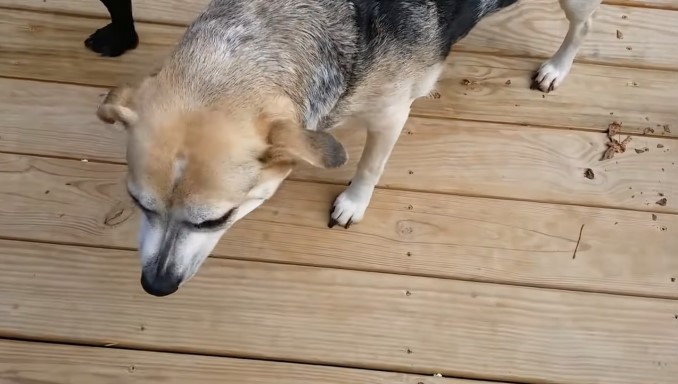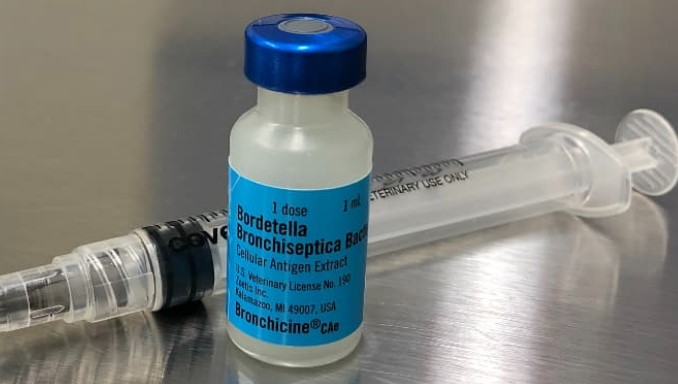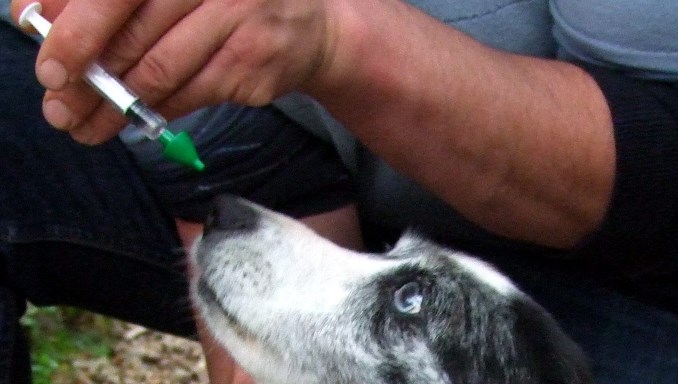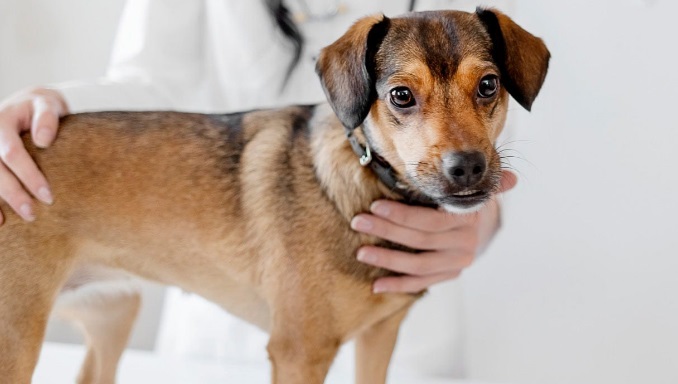Bordetella When To Vaccinate?
Do you know about Bordetella When To Vaccinate?
Bordetella is a highly contagious respiratory infection that often affects dogs. Thankfully, the Bordetella vaccine can help protect your dog from this illness. However, it’s important to know when to vaccinate your pet against Bordetella, as well as other vaccinations your dog may need.
In this blog post, we’ll discuss the basics of vaccinating your dog against Bordetella and when to do so. We’ll also provide some tips on keeping your furry friend healthy and safe. Keep reading!
What Is Bordetella?
Bordetella is a genus of bacteria that includes several species known to cause respiratory infections in humans and other animals. The most well-known Bordetella bacterium is Bordetella pertussis, which causes whooping cough. Bordetella bronchiseptica is another common cause of respiratory infections in animals, particularly dogs, cats, and rabbits.
Bordetella is a highly contagious respiratory disease that is common in dogs. It is caused by the Bordetella bronchiseptica bacteria and is often seen in kennels, shelters, and other places where dogs are housed close together. The disease can cause severe coughing, sneezing, and nasal discharge in affected dogs and can be deadly in puppies and older dogs. Treatment for Bordetella often includes antibiotics and supportive care. Prevention of the disease is through vaccination and good hygiene practices.
In severe cases, pneumonia can develop. Bordetella is highly contagious, which is why it’s important to vaccinate your dog against it.

Bordetella In Dogs – Causes, Symptoms & Treatment
Before learning about Bordetella When To Vaccinate, let’s take a closer look at Bordetella in dogs!
Your dog is coughing and sneezing, has a runny nose, and seems generally miserable. Could it be Bordetella?
How do dogs get bordetella? Bordetella is a respiratory disease that is caused by a bacteria called Bordetella bronchiseptica. This bacteria is highly contagious and can infect both dogs and cats. It is most commonly spread through contact with other infected animals, by coughing and sneezing, or by sharing contaminated food and water bowls.
Symptoms of Bordetella in dogs include:
- Coughing: This is the most common symptom and may be either dry or productive (meaning your dog brings up phlegm).
- Sneezing: This may be mild or severe.
- Eye discharge: This may be watery or thick and pus-like.
- Lethargy: Your dog may seem tired and not want to play or exercise.
- Runny nose: This is often one of the first symptoms to appear.
- Loss of appetite: Your dog may not be interested in food.
- Fever: This is often one of the first symptoms to appear.
In severe cases, pneumonia can develop. Pneumonia is a serious lung infection that can be fatal.
Bordetella is most commonly diagnosed through a combination of symptoms and a physical examination. Your veterinarian may also recommend chest x-rays or a transtracheal wash (a procedure where fluid is collected from the trachea for analysis) to look for evidence of the bacteria.
Treatment of Bordetella typically involves a course of antibiotics. In severe cases, hospitalization may be necessary.
To help prevent the spread of Bordetella, make sure your dog is up-to-date on his vaccinations and that he is not around other sick animals. If you must take your dog to a boarding facility or grooming salon, be sure to ask if they require proof of Bordetella vaccination.
For more information on Bordetella in dogs, talk to your veterinarian.

Bordetella In Humans
In addition what is Bordetella and Bordetella When To Vaccinate, you may need to know Bordetella in humans. Bordetella is a bacterial infection that can cause severe respiratory illness in humans. The bacteria are spread through contact with respiratory secretions, such as saliva, mucus, or blood, from an infected person.
Symptoms of Bordetella in humans include coughing, sneezing, and fever. In severe cases, pneumonia can develop. Pneumonia is a serious lung infection that can be fatal.
Bordetella is most commonly diagnosed through a combination of symptoms and a physical examination. Your doctor may also recommend chest x-rays or a transtracheal wash (a procedure where fluid is collected from the trachea for analysis) to look for evidence of the bacteria.
Treatment of Bordetella typically involves a course of antibiotics. In severe cases, hospitalization may be necessary.
To help prevent the spread of Bordetella, make sure you wash your hands often and avoid close contact with sick people. If you are sick, stay home from work or school to avoid exposing others.
If you think you or your child may have Bordetella, talk to your doctor. Early diagnosis and treatment is important to help prevent the spread of the disease.
Bordetella is a highly contagious bacterial infection that can cause severe respiratory illness in humans and dogs. The bacteria are spread through contact with respiratory secretions, such as saliva, mucus, or blood, from an infected person or animal.
In humans, symptoms of Bordetella include coughing, sneezing, and fever. In severe cases, pneumonia can develop. Pneumonia is a serious lung infection that can be fatal.
In dogs, symptoms of Bordetella include a severe cough, runny nose, and fever. Some dogs may also develop pneumonia.
Bordetella is most commonly diagnosed through a combination of symptoms and a physical examination. Your doctor may also recommend chest x-rays or a transtracheal wash (a procedure where fluid is collected from the trachea for analysis) to look for evidence of the bacteria. In dogs, diagnosis may also involve a chest x-ray or transtracheal wash.
Treatment of Bordetella typically involves a course of antibiotics. In severe cases, hospitalization may be necessary. In dogs, treatment may also involve a course of antibiotics
Bordetella Bronchiseptica In Cats
Bordetella bronchiseptica is a bacteria that can cause respiratory illness in cats. It is often spread through contact with other infected animals, and can cause a number of symptoms including coughing, sneezing, and fever. Infected cats may also have an increased appetite and drink more water than usual. Treatment for bordetella infection typically includes antibiotics, and cats that recover from the illness usually do not experience any long-term effects. However, some cats may develop a chronic form of the disease which can lead to more serious respiratory problems.
If you think your cat may have bordetella, it is important to take them to the vet as soon as possible. The sooner the infection is treated, the less likely your cat is to experience serious complications.
Bordetella Vaccine For Dog History
The Bordetella vaccine was first developed in the 1950s, and was originally used to protect against Bordetella bronchiseptica, a bacteria that causes respiratory infections in dogs.
The vaccine is now used to protect against Bordetella pertussis, a bacteria that causes whooping cough in humans. The Bordetella vaccine is given to puppies at 8 weeks of age, and then again at 12 weeks of age. The vaccine is effective for 6 months to 1 year. After the initial vaccination series, the Bordetella vaccine is given on an annual basis. The Bordetella vaccine is considered a core vaccine for dogs, which means that all dogs should be vaccinated against it. Keep reading to find the answer for Bordetella when to vaccinate.

Bordetella When To Vaccinate?
Bordetella Vaccinations For Dogs – When & Why?
As we mentioned, Bordetella is a highly contagious disease that can be deadly in puppies and older dogs. The good news is that there is a vaccine available to help protect your dog from this disease.
The Bordetella vaccine is typically given as an intranasal vaccine (a vaccine that is given through the nose) or as an injectable vaccine. The intranasal vaccine is considered to be more effective and provides faster immunity than the injectable vaccine.
Most dogs will need to be vaccinated against Bordetella every six to twelve months. Puppies should receive their first dose of the vaccine at six to eight weeks of age, with a booster given two to four weeks later.
If your dog is going to be around other dogs, such as at a boarding facility or grooming salon, he should be up-to-date on his Bordetella vaccine. Some facilities may require proof of vaccination before they will allow your dog to stay or play.
The best way to protect your dog from Bordetella is to make sure he is up-to-date on his vaccinations and to avoid exposing him to sick animals. If you have any questions about the Bordetella vaccine or other vaccines for your dog, talk to your veterinarian.
Bordetella When To Vaccinate adult dog?
There are a few different schools of thought on when to vaccinate your adult dog. Some veterinarians recommend booster shots every year, while others say that every three years is sufficient. Ultimately, the decision of how often to vaccinate your dog is up to you and your veterinarian.
If you are unsure about how often to vaccinate your dog, it is always best to err on the side of caution and vaccinate more often rather than less. Vaccinating your dog is one of the simplest and most effective ways to keep them healthy, so it is always better to be safe than sorry!
Where Can I Get A Bordetella Shot For My Dog?
There are a few different places that you can get a Bordetella shot for your dog. Your vet is probably the best place to start, as they will be able to provide you with the vaccination and will also be able to keep an eye on your dog’s health in general. There are also some pet stores that sell vaccinations, but it is always best to talk to your vet first. Finally, there are some online retailers that sell vaccinations, but you should always make sure that you are buying from a reputable source.
Bordetella Vaccine Cost
The cost of the Bordetella vaccine can vary depending on a number of factors, such as the type of vaccine (intranasal or injectable), the brand of vaccine, and where you get the vaccine.
In general, you can expect to pay between $15 and $30 for the Bordetella vaccine. Some veterinarians may charge a bit more for the intranasal vaccine, as it is considered to be more effective than the injectable vaccine.
If you have health insurance for your dog, check with your insurer to see if the Bordetella vaccine is covered. Some policies may cover the cost of the vaccine, while others may only cover a portion of the cost.
Bordetella Vaccine Side Effects
The Bordetella vaccine is considered to be safe for most dogs. However, as with any vaccine, there is a small risk of side effects.
The most common side effect of the Bordetella vaccine is mild respiratory irritation. This may cause your dog to sneeze or cough for a short time after receiving the vaccine.
Other side effects that have been reported include vomiting, diarrhea, and lethargy. These side effects are typically mild and go away on their own.
In rare cases, more serious side effects, such as an allergic reaction or pneumonia, have been reported. If you notice any unusual symptoms in your dog after he receives the Bordetella vaccine, contact your veterinarian.
Bordetella Vaccine Effectiveness
The Bordetella vaccine is considered to be very effective at preventing the disease. However, it is not 100% effective.
Some dogs may still develop Bordetella even if they have been vaccinated. This is usually due to exposure to a high number of bacteria or to a particularly virulent strain of the bacteria.
If your dog has been vaccinated against Bordetella and he becomes sick, it is important to contact your veterinarian. He may need to be treated with antibiotics to clear the infection.
Bordetella Vaccine Schedule
As we mentioned, most dogs need to be vaccinated against Bordetella every six to twelve months. Puppies should receive their first dose of the vaccine at six to eight weeks of age, with a booster given two to four weeks later.
If your dog is going to be around other dogs, such as at a boarding facility or grooming salon, he should be up-to-date on his Bordetella vaccine. Some facilities may require proof of vaccination before they will allow your dog to stay or play.
The best way to protect your dog from Bordetella is to make sure he is up-to-date on his vaccinations and to avoid exposing him to sick animals. If you have any questions about the Bordetella vaccine or other vaccines for your dog, talk to your veterinarian.
Bordetella Vaccine At Home
If your pet is due for a Bordetella vaccine, you may be wondering if you can give the vaccine at home. The answer is yes! You can easily purchase a Bordetella vaccine at your local pet store or online, and then follow the instructions on the package to administer the vaccine to your pet.
There are a few things to keep in mind when giving your pet the Bordetella vaccine at home. First, make sure that you follow the instructions on the package carefully. Second, it is important to give the vaccine to your pet at least two weeks prior to their exposure to other animals, as this will help ensure that the vaccine has time to take effect. Finally, be sure to keep an eye on your pet for any signs of adverse reactions, such as excessive scratching or vomiting, and contact your veterinarian if you have any concerns.
With a little planning and preparation, you can easily give your pet the Bordetella vaccine at home!
How long is bordetella shot good for after expiration?
In addition Bordetella when to vaccinate, how long it goods for is another question. The Bordetella vaccine is typically considered effective for at least one year after the date of expiration. However, it is always best to check with your child’s healthcare provider to ensure that the vaccine is still effective and necessary.
Bordetella is a bacteria that can cause severe respiratory illness in dogs. The Bordetella vaccine is sometimes given as a standalone vaccine, but is more often given in combination with other vaccines, such as the DA2PP vaccine. The Bordetella vaccine is safe for most healthy dogs, but like any vaccine, there is a small risk of side effects. These may include mild diarrhea, vomiting, lethargy, and loss of appetite. If your dog experiences any of these side effects, contact your veterinarian.

Bordetella Treatment
If your dog contracts Bordetella, treatment will be necessary. Treatment typically involves the use of antibiotics, which can be given orally or intravenously.
In some cases, your dog may need to be hospitalized for treatment. This is usually only necessary if your dog is very young, very old, or has a weakened immune system.
The good news is that most dogs recover from Bordetella without any problems. With prompt treatment, your dog should be back to his normal self in no time!
Bronchi Shield
A Bronchi shield is a plant extract that helps to break down mucus in the lungs and bronchi. It also has expectorant, anti-inflammatory and antimicrobial properties.
This makes it an effective natural remedy for treating bronchitis, pulmonary infections and other respiratory conditions. Bronchi shield is available in capsules, liquid extracts and tinctures. It can also be used in a nebulizer.
bronchi shield oral rinse is a safe and effective way to help relieve symptoms of bronchitis, including cough, congestion, and mucus production. This rinse contains a special blend of ingredients that work together to thin mucus, reduce inflammation, and open up the airways. Simply mix the bronchi shield oral rinse with water and gargle for 30 seconds. You can use this rinse up to four times per day.
Nobivac Intra Trac 3
The Nobivac Intra Trac 3 vaccine is a safe and effective way to protect your dog from Bordetella bronchiseptica, a bacteria that can cause respiratory infections. The vaccine is given as an injection under the skin, and it works by stimulating the immune system to produce antibodies against the bacteria. The Nobivac Intra Trac 3 vaccine is typically given to puppies at 8 weeks of age, and then again at 12 weeks of age. Boosters are then given every 6 months. If your dog is exposed to Bordetella bacteria, the vaccine can help to prevent them from developing an infection.
Bronchicine Cae
Bronchicine Caelyx is a medication that is used to treat bronchitis, pneumonia, and other respiratory infections. It is available as an injection or a solution for nebulization. Bronchicine Caelyx works by killing the bacteria that cause these infections. The medication is typically given once or twice a day for 7 to 10 days. Bronchicine Caelyx is generally well-tolerated, but some side effects may occur. These include fever, chills, and difficulty breathing. If you experience any of these side effects, contact your doctor or seek medical attention immediately.
Preventing Bordetella In Dogs
Now you know more about Bordetella when to vaccinate, Here’s how to prevent Bordetella in dogs.
There are a number of ways to help prevent Bordetella in dogs. First, make sure your dog is up to date on all his vaccinations, including the Bordetella vaccine. If you board your dog or take him to daycare, ask if they require proof of the Bordetella vaccine.
Another way to help prevent Bordetella is to keep your dog healthy and clean. This means regular grooming and bathing, as well as a healthy diet. A healthy immune system will be better able to fight off any potential infections.
Finally, try to avoid places where there are a lot of other dogs. This includes doggie parks, dog beaches, and anywhere else where your dog might come into close contact with other dogs. If you must go to these types of places, make sure your dog is up to date on his Bordetella vaccine and consider having him wear a muzzle to help prevent him from picking up the bacteria.
How do you get rid of Bordetella in dogs?
There is no one definitive answer to this question as the best method for getting rid of Bordetella in dogs may vary depending on the individual dog and the severity of the infection. However, some possible methods for getting rid of Bordetella in dogs include:
-Administering antibiotics: This is often the first line of treatment for Bordetella infections in dogs. Antibiotics can help to clear up the infection and make the dog feel more comfortable.
-Using medicated shampoos: There are some medicated shampoos that can help to get rid of Bordetella bacteria on the dog’s skin and fur. These shampoos can be useful in milder cases of Bordetella infection.
-Implementing good hygiene: It is important to practice good hygiene when dealing with a dog that has Bordetella. This means washing your hands after coming into contact with the dog, as well as disinfecting any areas that the dog has been in contact with.
-Isolating the dog: In severe cases of Bordetella infection, it may be necessary to isolate the dog from other animals and people. This is to prevent the spread of the infection.
With proper treatment, most dogs will recover from a Bordetella infection without any long-term problems. However, some dogs may be more susceptible to recurrent infections. In these cases, it is important to work with a veterinarian to develop a plan to prevent future infections.

5 Facts About the Bordetella Vaccine for Dogs
1. The Bordetella vaccine is a safe and effective way to protect your dog from the Bordetella bacteria, which can cause severe respiratory illness in dogs.
2. The vaccine is typically given as an intranasal spray or injection, and is usually given to puppies at 8 weeks of age or older.
3. The Bordetella vaccine is not 100% effective, but it will help reduce the severity of symptoms if your dog does become infected with the bacteria.
4. The vaccine is not known to cause any serious side effects in dogs, though some may experience mild sneezing or watery eyes after receiving the spray form of the vaccine.
5. The Bordetella vaccine is an important part of your dog’s overall health care, and should be given as recommended by your veterinarian.
FAQs about Bordetella When To Vaccinate
Can you buy bordetella vaccine over the counter?
No, the Bordetella vaccine is not available over the counter. You will need to visit your veterinarian to get the vaccine. Bordetella vaccines are available by prescription from a licensed veterinarian. Consult with your veterinarian to see if the bordetella vaccine is right for your pet.
Do dogs need bordetella vaccine?
There are a lot of factors to consider when deciding whether or not your dog needs the bordetella vaccine. Some things to think about include your dog’s age, health, lifestyle, and exposure to other dogs. Talk to your veterinarian to see if the bordetella vaccine is right for your dog.
What does Bordetella do to dogs?
Bordetella is a highly contagious respiratory disease that affects dogs. It is caused by the Bordetella bronchiseptica bacteria, and can spread quickly through close contact with other dogs. Symptoms of Bordetella include coughing, sneezing, runny nose, and difficulty breathing. The disease can be severe in puppies and older dogs, and can lead to pneumonia or even death. Treatment for Bordetella typically includes antibiotics and supportive care. Prevention is the best way to protect your dog from Bordetella, and can be done through vaccination.
Is Bordetella fatal in dogs?
No, Bordetella is not fatal in dogs. However, it can cause severe respiratory disease, which can be fatal if left untreated. Treatment for Bordetella is typically with antibiotics. If your dog is showing signs of respiratory disease, please see your veterinarian as soon as possible. Early treatment is the key to a successful outcome.
Is Bordetella the same thing as kennel cough?
Yes, Bordetella is the same thing as kennel cough. Kennel cough is a highly contagious respiratory infection that affects dogs of all ages, breeds, and sizes. The most common symptom of kennel cough is a dry, hacking cough that sounds similar to a goose honking. Other symptoms may include sneezing, fever, and runny nose. Kennel cough is caused by a number of different viruses and bacteria, including Bordetella. Treatment usually involves rest, fluids, and antibiotics. In severe cases, hospitalization may be necessary. Prevention is the best way to protect your dog from kennel cough and other respiratory infections. Vaccinating your dog against Bordetella and other viruses and bacteria is the best way to prevent kennel cough.
Will Bordetella go away on its own?
Yes , Bordetella will go away on its own in most healthy dogs. However, some dogs may require treatment from a veterinarian if they develop complications from the infection. Treatment may also be necessary for puppies, senior dogs, or dogs with weakened immune systems. If your dog is showing any signs of illness, it is always best to seek vet care. Early diagnosis and treatment can help prevent more serious health problems from developing.
How is bordetella transmitted?
Bordetella is a highly contagious respiratory infection that affects dogs. It is caused by the Bordetella bronchiseptica bacteria, and can spread quickly through close contact with other dogs. The disease can be spread through coughing, sneezing, or contact with contaminated surfaces. It is important to keep your dog away from other dogs if they are sick, and to see your veterinarian for vaccination if they are at risk for exposure.
Why is Bordetella given every 6 months?
Bordetella is a bacterial infection that can cause respiratory infections in cats, including kennel cough. It is highly contagious and can spread quickly among cats, so it’s important to vaccinate your cat regularly. Vaccinating your cat every 6 months provides the most effective protection against Bordetella infection. In addition, some veterinarians may recommend vaccinating your cat more frequently if they are at risk for exposure to other cats or in a high-risk environment, such as a kennel. Vaccination can help prevent the spread of the disease and keep your cat healthy.
Conclusion
Bordetella is a highly contagious respiratory infection that can cause severe illness in dogs. Vaccination against bordetella is therefore recommended for all dogs, especially those who are likely to come into contact with other animals (such as at dog parks or groomers). Although the vaccine may not be 100% effective, it significantly reduces the risk of your dog becoming ill and spreading the disease to others. Speak to your veterinarian about whether bordetella vaccination is right for your pet.
Above is the article “Bordetella when to vaccinate?”. Thanks for reading!








